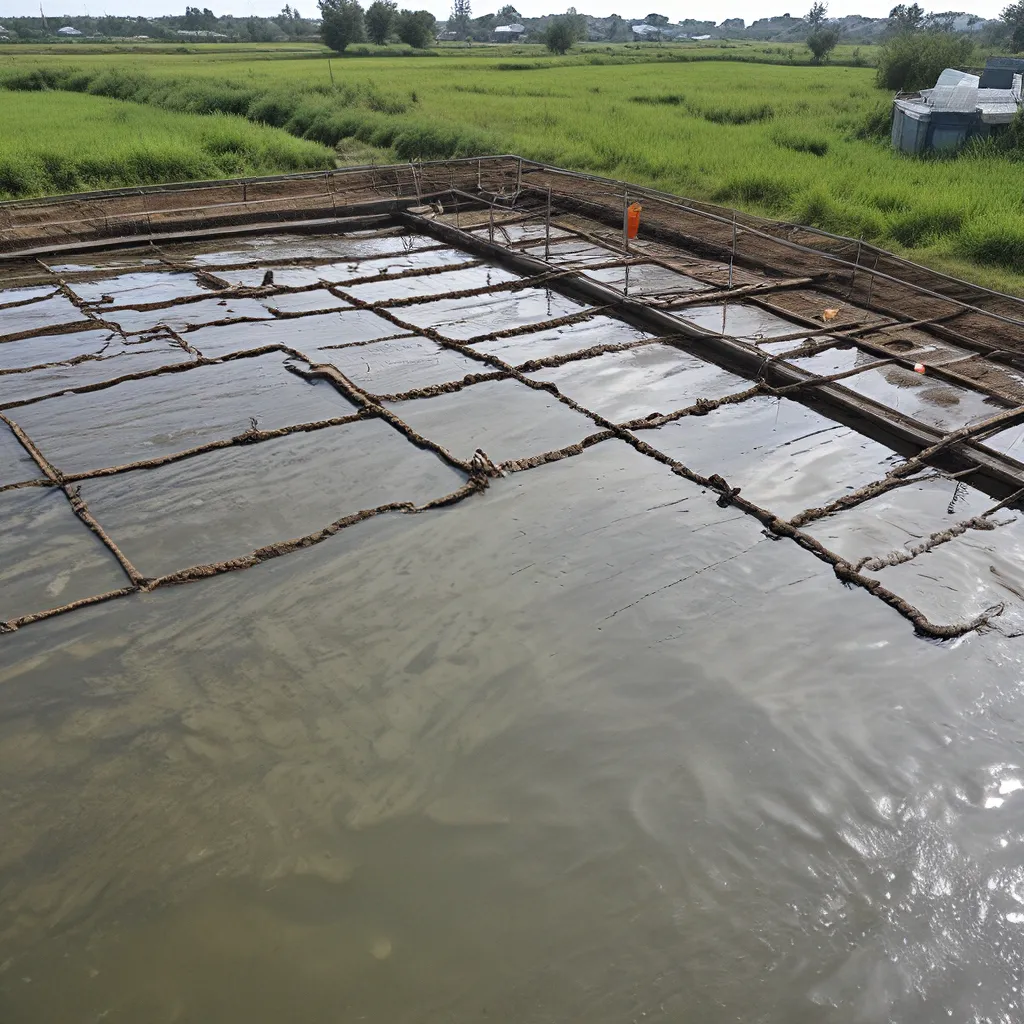
As an avid water enthusiast, I’ve always been fascinated by the intricate relationship between our wastewater systems and the potential for sustainable aquaculture. Recently, I’ve delved deeper into this topic, and I’m excited to share with you the remarkable discoveries that are unfolding in this space.
Aquaculture’s Pivotal Role in a Blue Economy
In our ever-evolving world, the concept of a “blue economy” has gained significant traction. This term refers to the sustainable use of ocean resources for economic growth, improved livelihoods, and job creation. At the heart of this blue economy lies aquaculture, the cultivation of aquatic organisms like fish, crustaceans, and mollusks.
Aquaculture has the potential to be a game-changer in addressing global food security challenges. As the world’s population continues to grow, the demand for protein-rich foods is skyrocketing. Conventional fishing methods alone cannot keep up, leading to the depletion of wild fish stocks. This is where aquaculture steps in, offering a sustainable solution to bridge the gap.
Wastewater: A Treasure Trove for Aquaculture
Now, here’s where the story takes an exciting turn. Researchers have discovered that wastewater can actually be a valuable resource for aquaculture operations. This discovery is not only groundbreaking but also presents a unique opportunity to create a symbiotic relationship between these two seemingly disparate systems.
Studies have shown that wastewater can be repurposed to cultivate various aquatic species, creating a closed-loop system that maximizes resource efficiency and minimizes waste.
Aquaponics: The Synergistic Solution
One of the most promising approaches to this wastewater-driven aquaculture is known as aquaponics. Aquaponics is a hybrid system that combines aquaculture (the cultivation of aquatic organisms) and hydroponics (the cultivation of plants in water without soil).
In an aquaponic system, the nutrient-rich wastewater from the aquaculture component is used to nourish the plants in the hydroponic component. This symbiotic relationship creates a self-sustaining ecosystem where the waste products from the aquatic organisms are converted into plant-available nutrients, and the plants, in turn, help to purify the water for the aquatic life.
The beauty of aquaponics lies in its efficiency and sustainability. By recycling nutrients and minimizing waste, these systems can produce a diverse range of high-quality seafood and agricultural products while conserving precious water resources.
Unlocking the Potential: Opportunities and Challenges
As I delved deeper into this topic, I discovered a wealth of untapped potential in the realm of wastewater-driven aquaculture. The implications are far-reaching, with the possibility of addressing food security, water scarcity, and environmental concerns all in one fell swoop.
Researchers are actively exploring the optimal conditions and best practices for integrating aquaculture with wastewater treatment systems. This includes investigating the ideal aquatic species, plant varieties, and system configurations to maximize productivity and efficiency.
However, it’s important to note that there are also challenges that need to be addressed. Factors like water quality, nutrient balancing, and disease management can pose significant hurdles. Overcoming these challenges will require a multidisciplinary approach involving experts from fields like engineering, biology, and environmental science.
Embracing the Future of Wastewater Aquaculture
As I’ve learned more about this exciting intersection of wastewater and aquaculture, I can’t help but feel a sense of optimism and wonder. The potential benefits are truly staggering, from enhancing food production to conserving precious water resources and reducing environmental impact.
Integrating wastewater treatment with aquaculture may well be the key to unlocking a more sustainable and resilient future. It’s a concept that challenges traditional thinking and embraces the interconnectedness of our natural systems.
So, as you navigate the world of wastewater management and aquaculture, I encourage you to keep an open mind, stay informed, and explore the extraordinary possibilities that await. Who knows what incredible discoveries and innovations may arise from this dynamic and ever-evolving field?
And if you’re interested in learning more about how Alpha Wastewater can help you leverage the potential of wastewater-driven aquaculture, I’d be more than happy to discuss further. After all, we’re all in this together, working towards a brighter, more sustainable tomorrow.